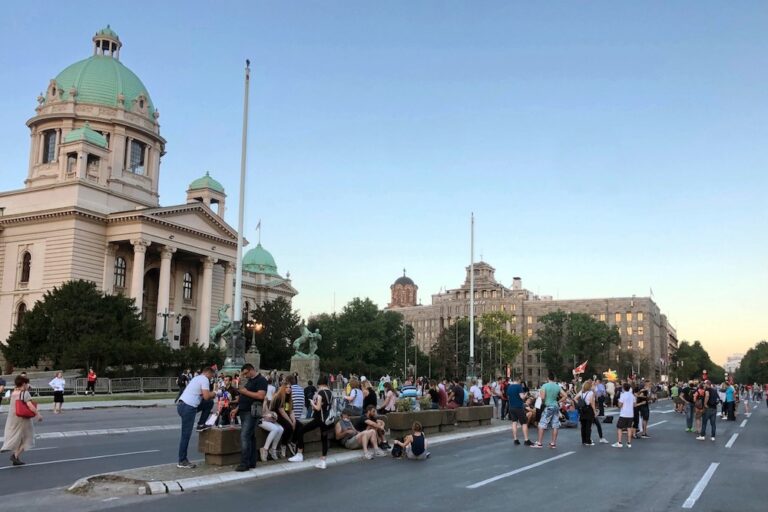(RSF/IFEX) – On 19 July 2002, RSF hailed the Serbian Parliament’s approval of a bill converting the country’s public television and radio network into an independent body and urged the government to implement the new law without delay. “After such a long debate about [the bill], [the new law’s implementation] is urgent,” said RSF Secretary-General […]
(RSF/IFEX) – On 19 July 2002, RSF hailed the Serbian Parliament’s approval of a bill converting the country’s public television and radio network into an independent body and urged the government to implement the new law without delay.
“After such a long debate about [the bill], [the new law’s implementation] is urgent,” said RSF Secretary-General Robert Ménard in a letter to Federal Information Secretary Slobodan Orlic. “The new management of the state TV and radio, RTS, and the new body assigning broadcasting frequencies must be truly independent of the authorities,” Ménard added.
“We are especially concerned that the distribution of frequencies not undermine the diversity of news that has blossomed in recent years with the opening of more broadcasting outlets in Serbia,” he said. “We ask you to bear in mind the concerns of the Association of Independent Electronic Media about this and [ensure the organisation] is involved in decisions,” Ménard implored.
The law, passed on 17 July, is the first in a series of measures dealing with information that were the focus of broad public discussion in 2001. It comes nearly two years after the fall of Slobodan Milosevic’s regime in October 2000. Since then, two main obstacles to freedom of information – the status of RTS and a freeze on the assigning of new frequencies – have remained.
The new law makes RTS a “public service”, independent of the government, and sets up an independent body to assign frequencies to new media, most of which currently broadcast without a licence.
RSF notes that RTS, along with the Tanjug news agency, the newspaper “Borba”, Radio Jugoslavia and the TV station Yu Info, were all controlled and funded by the government until October 2000. RTS, with over 20 million euros (approx. US$20,175,000) in debts, ageing equipment and a bloated staff, was especially dependent on the government. Key positions in RTS were often filled by the government’s or political parties’ friends.
The assignment of broadcasting frequencies to other privately-owned or local media was frozen in 2001. All the media outlets that were refused a licence by the Milosevic regime still do not have one, while media that were close to the old regime, such as the TV Pink and TV BK television networks, have started up new stations and are now stronger.
RSF also notes that the criminal code, with its especially harsh clauses concerning defamation, has still not been amended.


